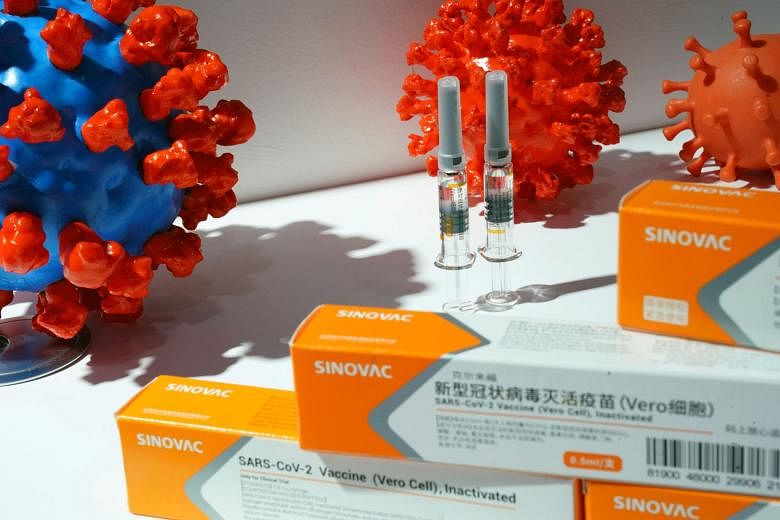SHANGHAI • China is inoculating tens of thousands of its citizens with experimental coronavirus vaccines and attracting international interest in their development, despite expert concerns over the safety of drugs that have not completed standard testing.
China launched a vaccine emergency use programme in July, offering three experimental shots developed by a unit of state pharmaceutical giant China National Pharmaceutical Group (Sinopharm) and US-listed Sinovac Biotech.
A fourth one being developed by CanSino Biologics was approved for use by the Chinese military in June.
Aiming to protect essential workers and reduce the likelihood of a resurgence, the vaccines are grabbing attention in the global scramble by countries to secure supplies.
Beijing has not released official data on the uptake in domestic targeted groups, which include medical, transport and food market workers.
But China National Biotec Group (CNBG), the Sinopharm unit developing two of the emergency use vaccines, and Sinovac have confirmed that at least tens of thousands of people have been inoculated.
CNBG said it had given hundreds of thousands of doses - one of its vaccines requires two or three shots for an individual to be inoculated.
Beijing has engaged a public, top-down approach to endorse the experimental vaccines and foster community support. Among those lining up for shots early on were the chief executives of Sinovac and Sinopharm and the military's research chief.
The chief biosafety expert at the Chinese Centre for Disease Control and Prevention revealed this week that she also had been injected in April as she announced the potential that at least some of the vaccines would be ready for public use as early as November.
"So far, among the people who were vaccinated, no one has been sick with the disease," Ms Wu Guizhen said on state TV. "So far, (the vaccination scheme) works very well. No side effect occurred."
Her comments were broadly in line with comments by CNBG last week that none of the tens of thousands of people who travelled to high-risk countries and regions after being vaccinated had been infected, and there was "no case of obvious adverse reaction".
China's approach runs counter to that of many Western countries, where experts have warned against authorising the emergency use of vaccines that have not completed testing, citing a lack of understanding about longer-term efficacy and potential side effects.
Dr Anna Durbin, a vaccine researcher at Johns Hopkins University, described China's emergency use programme as "very problematic", saying it was impossible to judge efficacy without a clinical trial standard control group.
"You're vaccinating people and you don't know if it's going to protect them," Dr Durbin said, adding that recipients of the experimental vaccines could eschew other protective measures.
Vaccine safety came into sharp focus last week when AstraZeneca paused late-stage clinical trials of its Covid-19 vaccine, one of the most advanced in development.
The company resumed British trials over the weekend after receiving the green light from safety watchdogs, and, along with other leading Western vaccine makers, has pledged to uphold scientific study standards and reject any political pressure to rush the process.
Russia is one of the few countries to authorise the use of an experimental vaccine, making its own Sputnik-V vaccine mandatory for some groups such as teachers.
India is also considering emergency authorisation for a vaccine, particularly for the elderly and people in high-risk workplaces.
REUTERS











